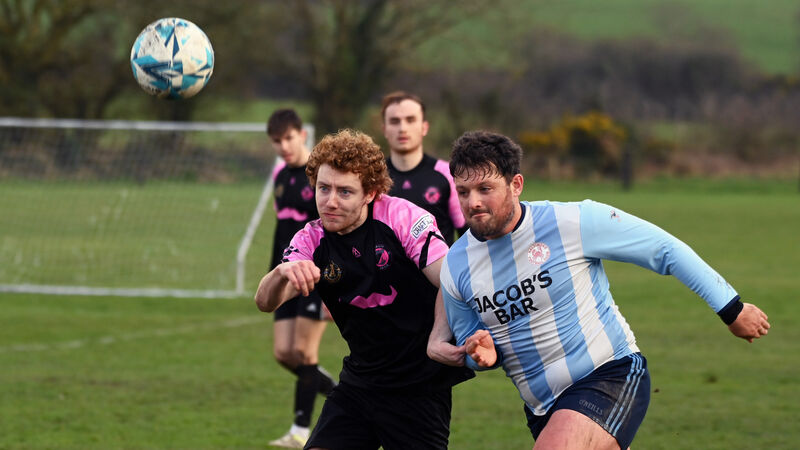Back of the net: Men's Sheds, teamwork, and the end of 'man up' mentality

12th February 2023 XX: Noel Baker : Ciara McDonnell : men's health in Weekend Clonakilty United's Tony O'Connell in action against Baltimore Crabs. Picture; Eddie O'Hare
It's into the second half in a Championship Cup quarter-final and with Clonakilty United one-down at home to Aultagh Celtic and about to take a corner, geology intervenes. Amid the crashing and banging of Sunday morning soccer, a small rock has been uncovered in the penalty area. Strikers become groundsmen, the offending article is tossed to one side and a few chunks of turf are jammed into the hole. The joys.
For recently-formed Clonakilty United, it's a minor obstacle on their cult-club-in-the-making journey. Their oldest player is just 23, their kit is modelled on that of south London outfit Dulwich Hamlet, and their sponsor really catches the eye - the Movember moustache, resplendent in pink. It is a visual representation of the team's ethos, a focus on both physical and mental health, driven by their own experiences as young people emerging from a pandemic, dealing with all life can throw at you.











